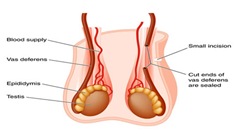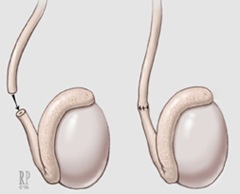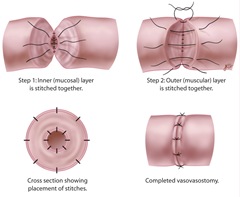Can a Man Reverse His Vasectomy? A vasectomy reversal can be quite a complicated and delicate procedure and doesn’t come with any guarantees. A vasectomy reversal procedure reconnects the tubes that allow sperm to flow normally and allow a man to conceive again. Testes are the sex glands in males, and their main job is to store and produce sperm.
In vasectomies, the surgeon prevents sperm from reaching the semen by cutting the tubes responsible for carrying the sperm to the urethra. Usually, a vasectomy is considered a permanent type of contraception, as reversing the procedure isn’t always possible. So, if you are thinking about getting a vasectomy, it’s important to remember that the procedure doesn’t have a 100% success rate with reversals. When performing a vasectomy reversal, the surgeon rejoins the blocked or cut tubes, ensuring the sperm can reach your testes so you can impregnate your partner.
Is it Possible for Men to Reverse Their Vasectomy?
Yes, reversing a vasectomy is possible, and hundreds, if not thousands, of men opt for it every year. That said, this procedure is not always successful. Plus, there are plenty of factors that determine whether the procedure will bear results. Some of those factors include:
- Age
- Overall health
- Preexisting conditions
- The genetic quality of the sperm
Most people get a vasectomy to avoid having kids or adding more to their family. However, some change their mind later in life and want to be able to have children. That’s where getting a vasectomy reversal could be helpful. With time, there has been a notable increase in vasectomy reversal success rates as more professionals learn how to perform this complex procedure.
Are Vasectomy Reversals Risky?
Generally, a vasectomy reversal is considered quite a safe procedure even if it doesn’t turn out to be successful. People rarely have complaints regarding post surgery pain or other similar issues. That said, a small percentage of men who undergo this procedure report experiencing the following issues:
Swelling: Some people notice swelling in their surgery area after the procedure. While this rarely happens, you must keep an eye out for it. If you experience such an issue, consult your doctor to receive the right treatment.
Chronic Pain: Once again, there are very few instances of people experiencing chronic pain after a vasectomy reversal. If you feel unbearable pain after the reversal procedure, waste no time consulting your surgeon or healthcare professional.
How Successful are Vasectomy Reversal Procedures?
As mentioned earlier, the success of a vasectomy reversal usually depends on the type of surgery you underwent and how when it happened. Of course, if the surgery took place a long time ago, your tubes will have a lot of scar tissue, lowering the likelihood of successful reversal. Here is a look at some vasectomy reversal success rates:
- Seventy five percent if the reversal is performed within three years
- Up to forty five percent after ten to fourteen years
- Thirty percent after fifteen to nineteen years
Can a Man Reverse His Vasectomy? Final Thoughts
Deciding to get a vasectomy reversal can be quite a tough decision, especially because there are no guarantees that the process will be successful. If you are unsure whether to opt for this surgery, consider contacting a professional like Dr. Yaniv Larish, who has a great deal of experience with reversals.
Once you contact the doctor’s team and book an appointment, one of the experts in his team will check your medical history and determine if you would be a suitable candidate for a vasectomy reversal. After that, they will counsel you on how to proceed with the surgery and provide post surgery guidance.
Call today to schedule a consultation.
Yaniv Larish, MD
4 East 76th Street
New York, NY 10021
(646) 862-5500





